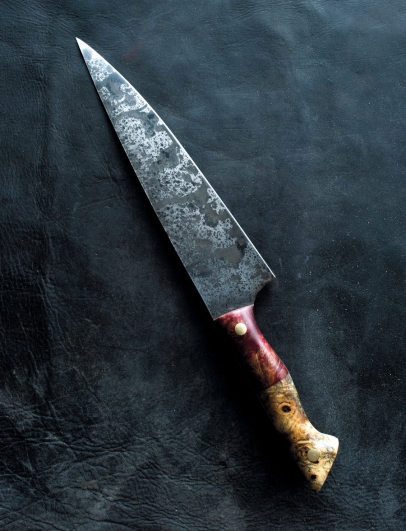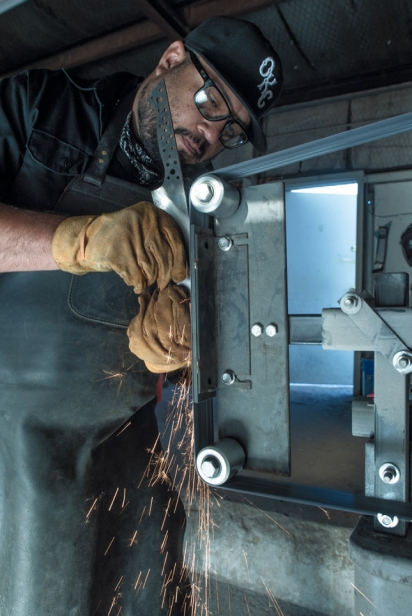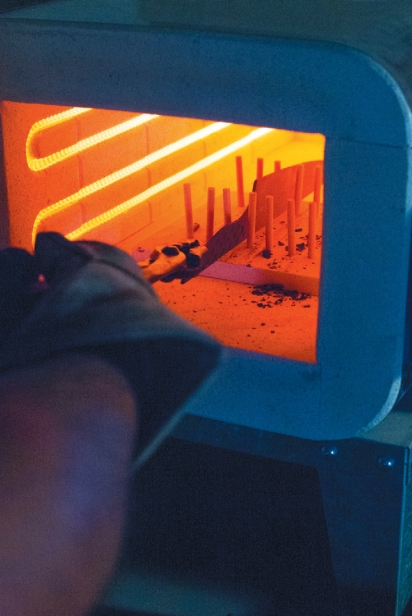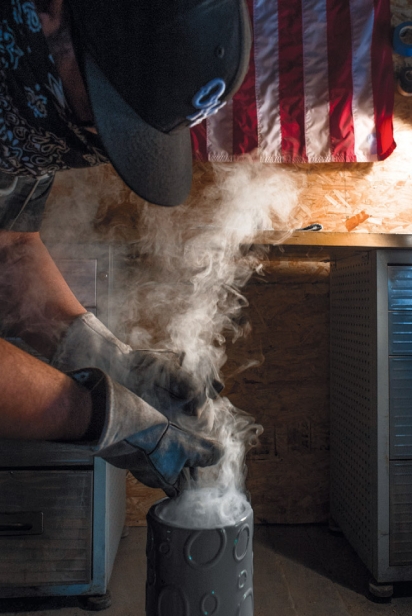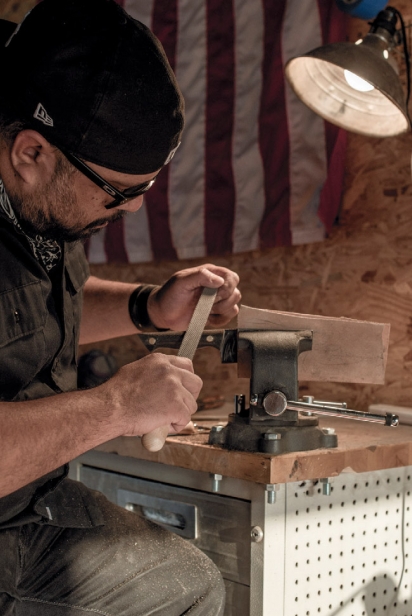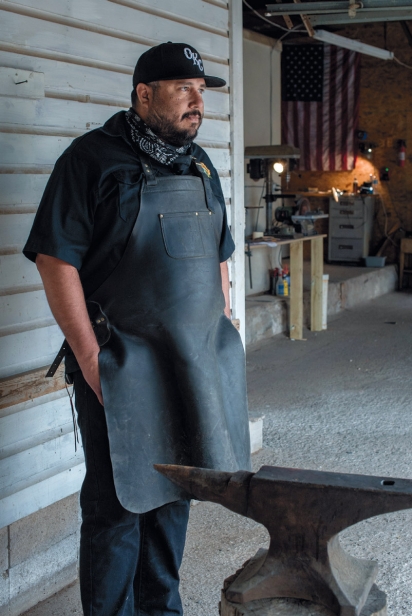Voight Knives
Justin Voight and knifemaking: a match that almost never made. Although Voight grew up around metal in his father’s machine shop in southern Oklahoma, he just wasn’t interested in it for most of his life. Instead, he become a photographer, living in Brooklyn and Los Angeles before returning home.
After moving back, Voight began to help out in his father’s shop and learned to weld. Suddenly, it hit him. “It’s like magic: you can transform metal with the application of heat,” Voight enthuses. Photography, especially in the digital age, can feel intangible as an artform. Capturing and editing images using a camera and a computer is one thing, but having a real, practical item made by hand from raw materials is another. “You start with raw pieces of metal and raw pieces of wood, and come up with something that can hopefully last a lifetime.”
Voight, in his new shop in the Farmer’s Market DIstrict, works with 52100 steel, a high-carbon material that is more commonly used to make ball bearings. It is resistant to abrasion and five times stronger than stainless steel, allowing for a finer, sharper edge. First, Voight grinds out the profile of the blade and sets pinholes to later attach the handle. Using a very high-powered kiln, the blade is then heat-treated, quenched in oil, and tempered to harden the steel.
The true test comes when it’s time to grind the blade. This is where his knives get their perfect sharp angles. Blade grinding is an art and a skill. “That’s when everything can go wrong, a slip of the hand,” Voight explains.
After the blade is honed, Voight attaches the handle. He chooses to use burled woods from American trees, such as maple, black ash, buckeye, even pecan, for the handles of most of his knives. It’s important to him that he uses wood from our part of the globe. “I try to use things people can relate to and be familiar with and not a lot of woods that aren’t native to this hemisphere or North America.”
Although he strives to make cutlery that is striking in its simplistic beauty, functionality is his number one mission. “I want it to feel classic, I want it to feel refined, and I want it to feel functional,” Voight says. “I’m friends with a couple of chefs and a butcher, they have my knives. I want someone who uses a knife on a daily basis, who has a profession that requires a knife, to be able to use my knife. The aesthetics, the beauty, the wood, none of that matters if it doesn’t function. It’s just a piece of steel.”
To keep his knives high-functioning, Voight offers to sharpen any of the knives he’s sold for its entire lifetime, putting an edge on it like it is brand new again. In addition, he is willing to teach his customers how to sharpen their own knives, which is a useful skill for anyone from the serious chefs to the casual home cooks. A sharp blade is not only easier to use than a dull one, but safer too. “When you have a fine knife or a knife that has been freshly sharpened, or something that has been finely crafted, it’s like an awakening. A nice knife makes you want to cook.”
Voight has been doing very steady business, which he attributes to a movement away from shopping at big box stores and towards makers and craftsmen. “I think people are appreciating more things that are local, things that people have a relationship with,” he explains. “Whether it be the guys that grow the food, or the knifemaker, the people that make the butcher’s blocks, people are wanting things that they can connect with more.”
With the growing interest in food and cooking, it’s important for people to invest in their kitchen tools. A knife is any cook’s most useful and essential instrument. “At the end of it, I don’t just have a knife hanging off my belt, I’ve got a tool that I can prepare a meal with, share with my friends, have great times, and make great memories.”
> Voight Knives, voightknives.com, @voightknives on Instagram


